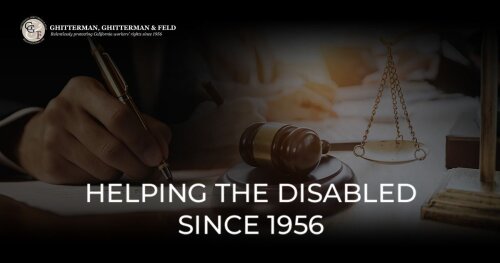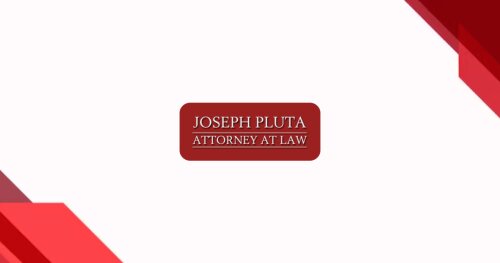Best Toxic Mold Lawyers in Vermont
Share your needs with us, get contacted by law firms.
Free. Takes 2 min.
Or refine your search by selecting a city:
List of the best lawyers in Vermont, United States
About Toxic Mold Law in Vermont, United States
Toxic mold is a significant concern for Vermont residents, given the state's climate and prevalence of moisture in buildings. Toxic mold exposure can result in serious health problems and property damage. The legal field concerning toxic mold addresses the rights and responsibilities of property owners, tenants, builders, and landlords when mold growth impacts health or property value. In Vermont, toxic mold law spans areas such as landlord-tenant disputes, real estate transactions, construction defects, and insurance claims. Understanding the basics of toxic mold law is crucial for ensuring one's health and property are safeguarded under state regulations.
Why You May Need a Lawyer
If you encounter toxic mold in your home, workplace, or a property you own or rent, you may wonder when legal intervention becomes necessary. Some common situations where individuals seek legal advice include:
- Landlords and property managers failing to address visible mold or water leaks after notification
- Health issues linked to mold exposure such as respiratory problems or allergic reactions
- Buying or selling property with pre-existing mold contamination
- Insurance companies denying mold damage claims
- Disputes surrounding responsibility for mold remediation costs
- Employers not addressing workplace mold hazards
- Tenants who need to break a lease due to uninhabitable living conditions caused by mold
A lawyer specializing in toxic mold can help protect your rights, offer advice on evidence collection, negotiate with responsible parties, and, if necessary, file a legal claim or lawsuit.
Local Laws Overview
Vermont does not have comprehensive state laws specifically devoted to toxic mold. However, several statutes and regulations may apply, including those addressing habitability, disclosure, and environmental safety. Key aspects of Vermont law relevant to toxic mold include:
- Landlord-Tenant Law: Vermont law requires rental properties to be fit and habitable. Significant mold growth causing health or safety issues may violate these requirements, obligating the landlord to remedy the situation.
- Real Estate Disclosure: Sellers of residential properties must disclose known material defects, which can include toxic mold problems, during real estate transactions.
- Health and Safety Codes: Local health departments can deem properties unsafe due to environmental hazards, which may include severe mold infestations.
- Building Codes: Construction or renovation that leads to moisture problems and mold might violate local or state building codes, potentially implicating builders or contractors.
- Insurance: Many insurance policies in Vermont exclude mold damage, although exceptions might apply if the mold results from a covered peril, such as a burst pipe.
It's important to recognize that while Vermont law sets certain standards, resolving toxic mold disputes often depends on the details of your situation, relevant contracts, and local health or building code enforcement.
Frequently Asked Questions
What symptoms are associated with toxic mold exposure?
Symptoms can include respiratory problems, headaches, fatigue, allergies, skin irritation, and in severe cases, neurological impacts. Not everyone is equally sensitive to mold, but infants, the elderly, and those with weakened immune systems are at highest risk.
What should I do if I find mold in my rented Vermont apartment?
Notify your landlord in writing right away. Vermont law requires landlords to maintain habitable premises. If the landlord does not act promptly, you may be entitled to remedies, such as rent abatement, repairs, or even termination of the lease in severe cases.
Are landlords in Vermont required to disclose mold before renting or selling property?
For sales, sellers must disclose known material defects, including mold. For rentals, while there's no explicit statutory requirement to disclose mold, failure to do so could violate the implied warranty of habitability or local ordinances.
What evidence should I collect if I intend to make a legal claim about toxic mold?
Photographs, written communications (emails, letters) with landlords or other parties, medical documentation, inspection reports, and repair or remediation invoices are helpful. Documentation strengthens your position if legal action becomes necessary.
How long do I have to file a lawsuit for toxic mold in Vermont?
Generally, the statute of limitations is three years for personal injury and six years for property damage. Specific circumstances may alter these timelines, so consult a Vermont attorney promptly.
Can I break my lease in Vermont if toxic mold makes my rental unit uninhabitable?
Potentially, yes. If mold causes a significant health hazard and your landlord does not remedy the situation after notice, Vermont law may allow you to terminate the lease for uninhabitable conditions.
Does my homeowner's or renter's insurance cover mold damage in Vermont?
Most insurance policies in Vermont exclude mold damage unless it is caused by a covered event, such as water damage from a burst pipe. Review your policy and speak with your insurer for details specific to your coverage.
Can my employer be held responsible for mold in my workplace?
Yes, Vermont employers must maintain a safe workplace. If you report mold and your employer fails to remedy it, you may have grounds for a complaint to workplace safety authorities or a legal claim if you are harmed.
Are there governmental inspections for mold in Vermont properties?
Vermont does not mandate routine mold inspections. However, local health departments may intervene if mold creates a severe health hazard, especially in rental housing or public buildings.
How can I find a qualified toxic mold lawyer in Vermont?
Look for attorneys with experience in environmental, personal injury, or landlord-tenant law. Consult the Vermont Bar Association, local legal aid, or organizations specializing in housing rights to find qualified representation.
Additional Resources
If you are dealing with toxic mold issues in Vermont, the following resources may be helpful:
- Vermont Department of Health - Information on mold in homes and health-related concerns
- Vermont Attorney General's Office - Consumer protection information for tenants and property buyers
- Vermont Bar Association - Lawyer referral services
- Local health departments - For complaints about unsafe housing conditions
- Legal aid organizations - Assistance for low-income individuals facing housing or mold issues
- Environmental Protection Agency (EPA) - Guidelines for indoor air quality and mold remediation
Next Steps
If you are experiencing a toxic mold problem in Vermont, consider taking the following actions:
- Document the issue thoroughly and keep all communications in writing.
- Contact your landlord, property manager, or employer and provide clear notification of the problem.
- If the issue is not resolved or your health is at risk, reach out to your local health department.
- Consult a qualified Vermont toxic mold lawyer for advice on your rights and potential legal remedies.
- Review your insurance policies for any possible coverage of mold damage.
- Seek appropriate medical attention if you have health concerns linked to mold exposure.
Legal remedies often depend on acting quickly and having good documentation. A legal professional can guide you through Vermont’s specific requirements and help you obtain the resolution you deserve.
Lawzana helps you find the best lawyers and law firms in Vermont through a curated and pre-screened list of qualified legal professionals. Our platform offers rankings and detailed profiles of attorneys and law firms, allowing you to compare based on practice areas, including Toxic Mold, experience, and client feedback.
Each profile includes a description of the firm's areas of practice, client reviews, team members and partners, year of establishment, spoken languages, office locations, contact information, social media presence, and any published articles or resources. Most firms on our platform speak English and are experienced in both local and international legal matters.
Get a quote from top-rated law firms in Vermont, United States — quickly, securely, and without unnecessary hassle.
Disclaimer:
The information provided on this page is for general informational purposes only and does not constitute legal advice. While we strive to ensure the accuracy and relevance of the content, legal information may change over time, and interpretations of the law can vary. You should always consult with a qualified legal professional for advice specific to your situation.
We disclaim all liability for actions taken or not taken based on the content of this page. If you believe any information is incorrect or outdated, please contact us, and we will review and update it where appropriate.
Browse toxic mold law firms by city in Vermont
Refine your search by selecting a city.










